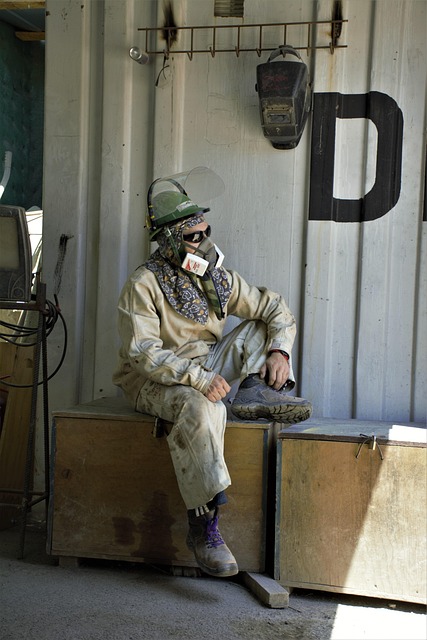Discover the Construction Work Environment in Rotterdam
If you live in Rotterdam and speak English, a career in construction can offer stable employment, competitive pay, and room to grow. From building homes to large infrastructure projects, construction sites demand physical strength, attention to safety, and teamwork. Learn what daily work is like, which roles are most in demand, and how to prepare for training, certifications, and career advancement in Rotterdam’s dynamic construction industry.

Working Conditions and Safety on Rotterdam Construction Sites
Construction work in Rotterdam operates under strict health and safety regulations that align with both Dutch national standards and European Union directives. Most construction sites maintain regular working hours from 7:00 AM to 4:00 PM, though schedules may vary depending on project deadlines, seasonal daylight availability, and urban noise restrictions.
Weather conditions significantly impact the construction environment in Rotterdam. The city’s maritime climate brings consistent rainfall throughout the year and strong winds, particularly in autumn and winter. These conditions require construction companies to implement weather protection measures and occasionally adjust work schedules.
Safety protocols on Rotterdam construction sites are particularly rigorous. All workers must complete the VCA safety certification (Veiligheid, Gezondheid en Milieu Checklist Aannemers), which covers essential safety practices and hazard recognition. Personal protective equipment (PPE) including helmets, safety boots, high-visibility clothing, and often hearing protection is mandatory on all sites. Most large construction companies in Rotterdam implement additional safety measures such as daily toolbox meetings, regular equipment inspections, and comprehensive risk assessments.
Key Roles, Skills, and Daily Responsibilities in Construction
The construction sector in Rotterdam encompasses a diverse range of occupations requiring various skill levels and specializations. Core roles include:
Skilled tradespeople such as carpenters, electricians, plumbers, and masons form the backbone of the construction workforce. These positions require specialized vocational training, usually obtained through MBO education programs (intermediate vocational education) and apprenticeships. Daily responsibilities typically involve interpreting technical drawings, installing systems according to specifications, and ensuring work meets building codes.
Construction engineers and project managers coordinate operations across sites, managing timelines, budgets, and quality standards. These positions generally require higher education credentials (HBO or university level) with specializations in civil engineering or construction management. Their daily work involves liaising with contractors, solving technical challenges, and ensuring regulatory compliance.
Machine operators handle specialized equipment like cranes, excavators, and concrete pumps. These roles require specific certification and training, with responsibilities centered on safe and efficient equipment operation, basic maintenance, and coordination with ground crews.
The multilingual nature of Rotterdam’s construction sites is noteworthy. While Dutch remains the primary language, communication often occurs in English, Polish, Romanian, and other languages reflecting the international workforce. This diversity requires effective communication strategies across language barriers, particularly for safety instructions.
Career Growth and Opportunities in Rotterdam Construction Industry
Rotterdam’s construction sector offers substantial career development potential due to the city’s ongoing urban transformation and infrastructure investments. The Port of Rotterdam expansion, residential building programs, and commercial development projects create consistent demand for construction professionals at all levels.
Career advancement typically follows several pathways. Entry-level workers with minimal qualifications can progress to specialized trades through vocational training programs offered by institutions like the Rotterdam Techniek College. Those already possessing trade qualifications can advance to supervisory positions such as foreman or site manager with experience and additional certifications. Construction engineers and those with technical backgrounds can pursue project management roles or specialize in niche areas like sustainable building technologies or historical structure renovation.
Salary progression in Rotterdam’s construction sector generally correlates with experience and specialization. Entry-level positions typically start at €1,800-2,500 monthly (gross), while specialized tradespeople earn €2,500-4,000. Management positions and highly specialized engineering roles command salaries of €4,000-7,000 monthly or more.
The construction sector in Rotterdam is increasingly focusing on sustainability and innovation. This creates specialized opportunities in areas such as energy-efficient building techniques, circular construction methods, and smart building technologies. The city’s commitment to climate adaptation and carbon reduction goals ensures that professionals with expertise in green building practices will find expanding opportunities.
Rotterdam’s international position as an architectural innovation hub additionally provides exposure to cutting-edge projects. Construction professionals working in the city often gain experience with advanced building techniques and materials that enhance their professional profiles and career mobility both within the Netherlands and internationally.
For foreign workers considering construction careers in Rotterdam, the industry offers accessible entry points while providing pathways to long-term career development, supported by the city’s multicultural environment and ongoing construction activity across residential, commercial, and infrastructure sectors.




